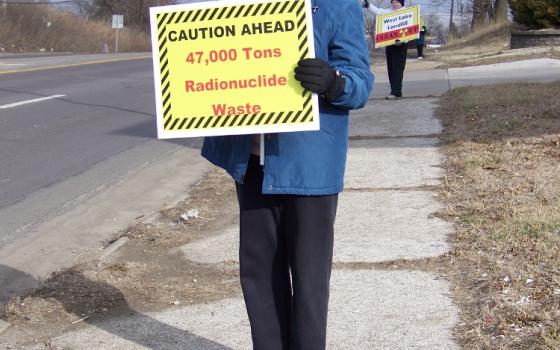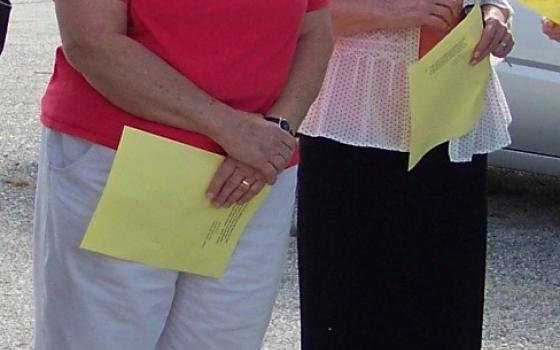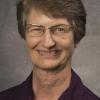A summer rain on an early Saturday morning invited me into the poetry of Thomas Merton. This Midwestern mystic and Trappist monk offers an invitation to enter into solitude and tend to the cry of our Mother Earth simply by listening to the rain. I watch the dance of the raindrops and hear the energy of life. It is a Merton moment calling me to a deeper integrity.
There is in all visible things an invisible fecundity, a dimmed light,
a meek namelessness, a hidden wholeness.
This mysterious Unity and Integrity is Wisdom, the Mother of all, Natura naturans- from "Hagia Sophia" in the Collected Poems of Thomas Merton
I rest in the magic of harmony as a robin plucks a juicy worm from the wet grass. She holds it in her mouth, to feed her young, not devouring it herself. This lesson in fasting helps me understand sustainability.
Suddenly the jarring cry of an angry blue jay insists on territorial rights. Harmony is flooded with dissonance, asking for equilibrium. Is this outcry an example of an ecosystem adjusting; can we say "negotiating" another way to live together in harmony?
The silence returns, birdsong resumes, and clusters of regal, rain-glistened poppies stand tall with renewed elegance and grace. Their presence is an expression of Wisdom. I wait in the midst of "invisible fecundity" and go deeper into concern for our common home.
Gently, I'm reminded of a Wednesday morning standing on the side of a road with others holding signs warning passersby of a burning nuclear landfill, the West Lake Landfill in St. Louis County, emitting toxic fumes. Several of us are supporting JustMomsSTL whose children are sick. These valiant women and men are attempting the long, slow conversation, trying to be civil as their unanswered letters and feelings of despair slowly smolder like the nuclear waste buried at West Lake. They are giving every ounce of their energy to loving their families through the painstaking networking with cooperative and non-cooperative governmental agencies, translating evasive messages that require a doctorate in nuclear science to decode, and dialogic skills that would challenge a CEO, playing sleuth to archival material moving through the revolving doors of numerous memos, spanning more than 30 years.
We're also speaking for our common home and those who live, work, and go to school here. Under the joint leadership of The Franciscan Sisters of Mary, a community of Catholic sisters dedicated to healing, we join both the moms and the sisters as they place their personnel and resources at the service of our common home.
As we stand together on the second and fourth Wednesdays, 9:30 to 10:15 a.m., with signs warning of burning nuclear waste, this compassion becomes real. There is a sense of solidarity with those who pass, especially those who honk their big 16-wheelers in support of our efforts. This moment of connection energizes me as we express one voice with truck drivers and folks who care about our Earth. They raise their arms and honk in affirmation. Somehow I feel relevant, standing as a family member of the broader Earth Community. It is a time when I pray for all children suffering from cancer and remember their families, especially JustMoms who have given their lives to resolve this tragedy. They have created a small book of photos showing their suffering children whose every breathing moment is a result of West Lake. The example of placing their stamina at the service of others through unending meetings and their love for the common good often moves me to tears.
After receiving a copy of their book as a Nun on the Bus, I delivered it to the office of Sen. Roy Blunt, discussing this crisis in a 45-minute meeting with his knowledgeable field representative, Jennifer Hoskins. Her empathy touched my heart. It was obvious that she, too, wanted to change a tragedy that is so destructive of life in St. Louis and beyond.
After standing by the side of the road with our signs, we then form a prayer circle raising our voices to Mother Earth pleading:
We pray your healing upon this sad and sick place. We pray wisdom and courage and transparency for all those who must work together to prevent the great harms that this place portend. We pray for all of our brothers and sisters who are fearful and angry and mistrustful and distressed by mixed messages, at being dismissed, and denied accessible information upon which they can rely and make decisions for their lives. We understand their anger at their sense of loss and endangerment and in their name too, we raise this prayer.
Our friends from the Missouri Coalition for the Environment give us an update on recent developments. We are encouraged by the creativity and generosity of many people in this energizing group on a Wednesday morning at West Lake.
As we pray the words, I recall my solidarity with others, concerned about the children of all species, who count on us to speak for our common home: the children of the oaks, the geese, and the squirrels.
The rain in the ditches near West Lake has evidence of nuclear run-off. The once lovely rain is warning us of what passes through the ditches, seeping into our soil, and bloodstreams. How will I tend to the cry of Mother Earth, awakening to her alarming message? How will I learn the language of the rain?
Back in my own home the rain gently falls again. It's another Merton moment. Listening to the rain I pray Earth Scripture. I'm learning to understand and respond to the language of the rain at West Lake, hearing in it the Cry of our Mother. It is a beatitude of the rain chanting hope to our longing hearts: "Blessed is the rain breathing possibility into our Earth."
What a thing it is to sit absolutely alone, in the forest, at night, cherished by this wonderful, unintelligible, perfectly innocent speech, the most comforting speech in the world, the talk that rain makes by itself all over the ridges, and the talk of the watercourses everywhere in the hollows! Nobody started it; nobody is going to stop it. It will talk as long as it wants this rain. As long as it talks I am going to listen.
- from Thomas Merton's "Rain and the Rhinoceros" in Raids on the Unspeakable
[Judith Best is coordinator of www.sturdyroots.org and gives presentations on the heritage of the School Sisters of Notre Dame. She is also exploring evolution as the bridge between science and religion.]
Related: Radioactive dumping grounds are a concern for US sisters


